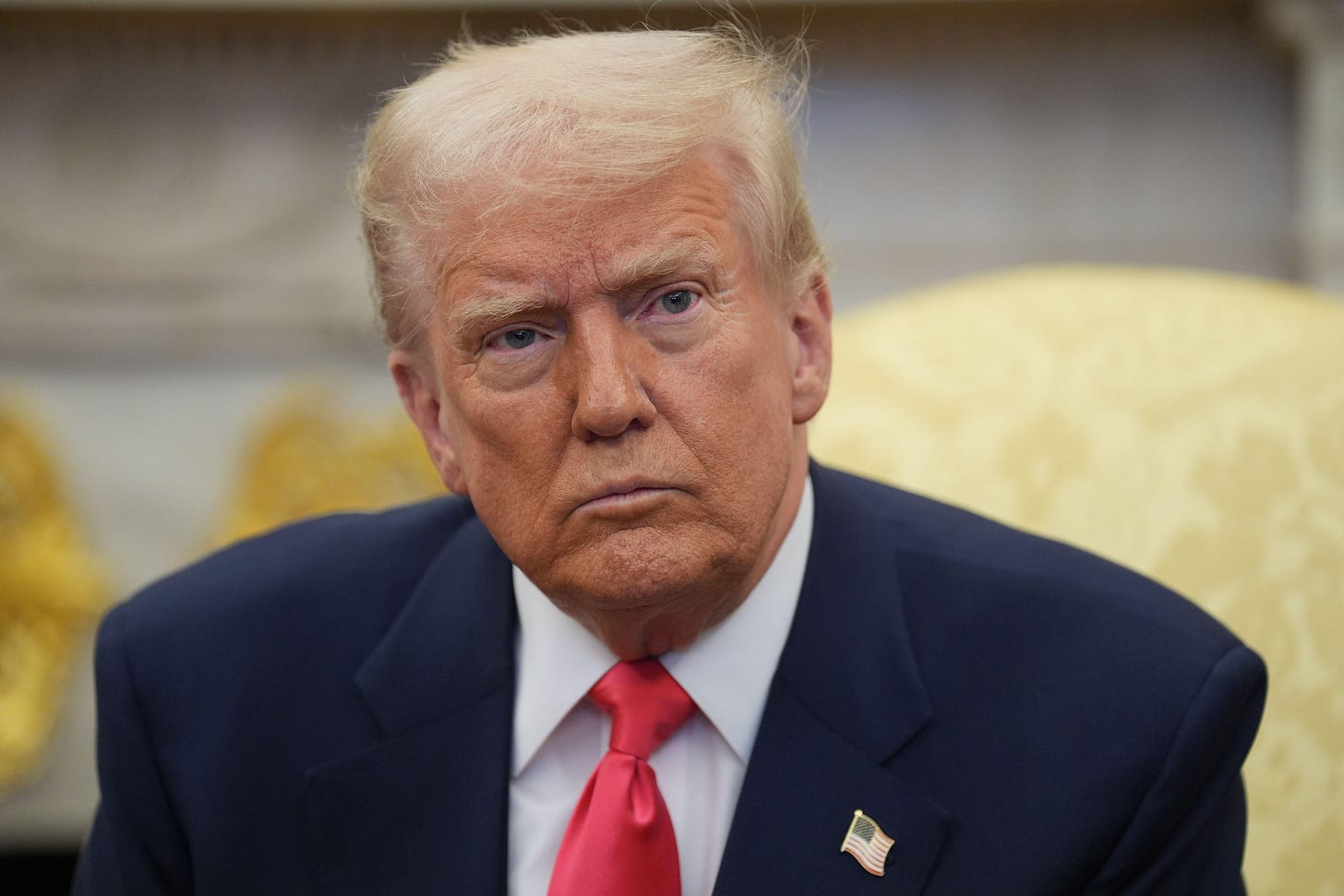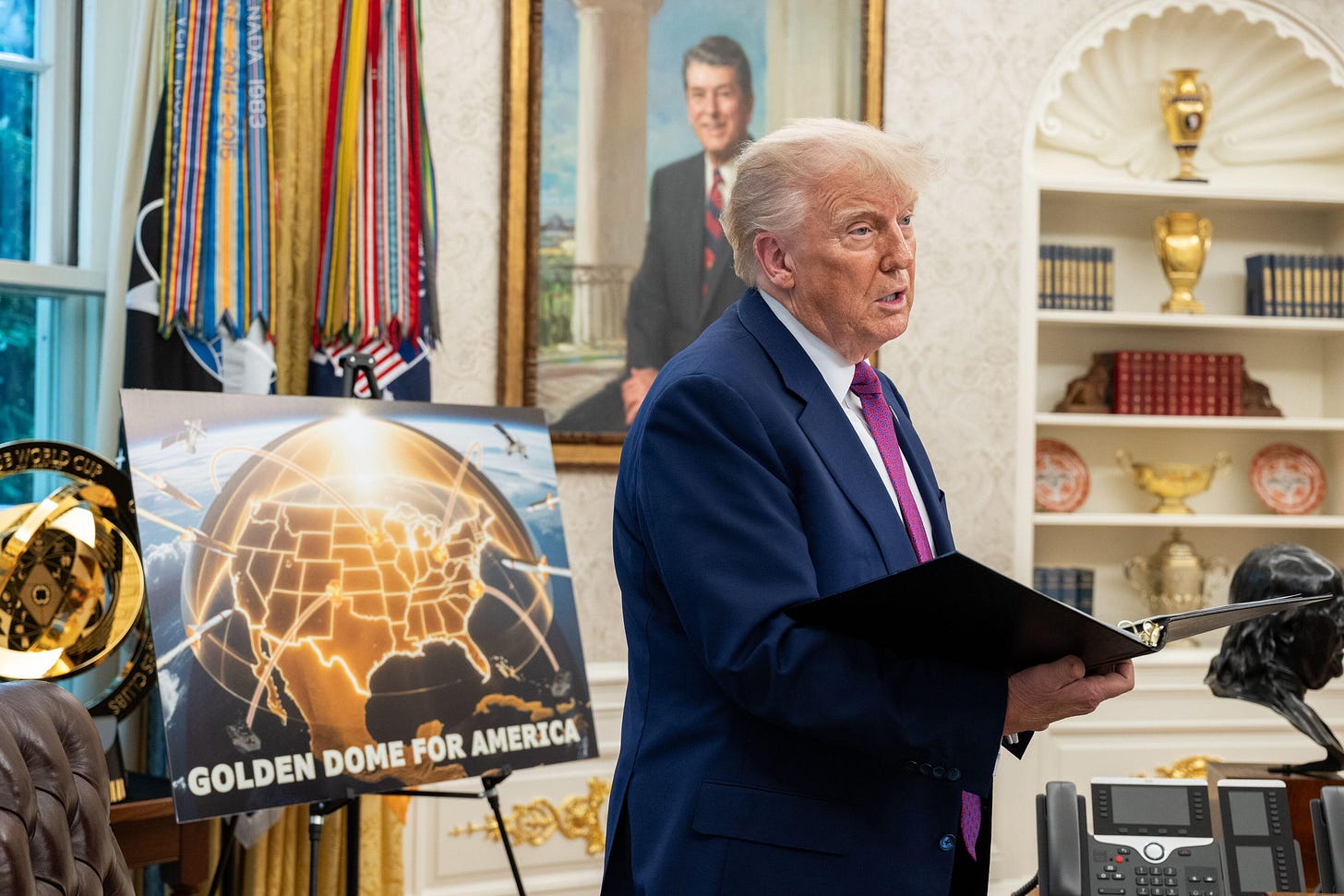“It is not for unelected judges to decide how to properly address a national emergency," fumed the White House today after a US federal court blocked Donald Trump’s sweeping set of tariffs, in a humiliating blow to the US President’s signature economic policy.
The Court of International Trade has ruled that the US President’s imposition of tariffs was illegal and given the White House ten days to formally reverse them. This includes his 10 per cent baseline tariffs as well as the steeper “reciprocal” tariffs due to take effect in July, though steel and aluminium tariffs are not affected as they fall under a different law.
The Trump administration says it will go to the Supreme Court on Friday to halt this “legally indefensible” action, unless an appeals court agrees to immediately block today’s ruling from “activist judges”.
What is the legal basis of today’s case?
The Manhattan-based Court of International Trade has essentially accused the US President of misusing emergency powers.
According to America’s constitution, trade policy is the domain of Congress.
Yet Trump imposed his sweeping set of tariffs through an executive order, without seeking congressional approval, by using an emergency law. The International Emergency Economic Powers Act of 1977 grants presidents broad authority to respond to extraordinary threats that originate outside the US. Attempting to remedy a trade deficit, the judges argued, does not constitute a suitable “emergency”, meaning Trump has overstepped his authority.
Now, it’s up to the appeals court and Supreme Court to decide if Trump acted unconstitutionally.
The US President has an experienced team of trade lawyers - including US Trade Representative, Jamieson Greer - and he is not going to back down without a fight. It’s worth noting too that there is a law passed by Congress in 1974 giving presidents authority to impose 15% tariffs for 150 days in cases of “large and serious” trade deficits and unfair trade practices. And, while Trump bypassed Congress before, he may be able to get them on side.
Even so, today’s ruling casts major doubt over whether the currently-paused “reciprocal” tariffs will ever come into effect, meaning it threatens to unwind months of diplomatic negotiations.
At a crunch moment in America’s bilateral trade talks with China, Japan, the EU and India, today’s ruling has totally removed the so-called master of the deal’s leverage.
No country will be in the mood to make big concessions to Washington when tariffs may not even go ahead anyway.
Ongoing negotiations will likely be put on hold while this domestic legal battle plays out.
There is an irony that the biggest obstacles to Trump’s protectionist trade policy have, so far, come from within America: first a backlash from the US bond markets, and now from the country’s own courts.
Caitlin Allen
Deputy Editor
ON REACTION TODAY
Gerald Warner
America must urgently mend its fences with Greenland
James Rose
Why Trump’s Golden Dome missile defence shield is a dangerous idea
ALSO KNOW
Israel approves biggest settler expansion in decades - Israeli ministers have approved 22 new Jewish settlements in the occupied West Bank, in what the Israeli anti-settlement watchdog Peace Now labelled "the most extensive move of its kind" in more than 30 years. Under the Oslo Accords, Israel committed not to establish new settlements which are widely seen as illegal under international law. The motion is said to have been put forward by Israel’s far-right defence minister, Israel Katz, and finance minister, Bezalel Smotrich, who called it a "once-in-a-generation decision”. Nabil Abu Rudeineh, a spokesperson for Palestinian President Mahmoud Abbas, labelled the move a “dangerous escalation”, urging Trump’s administration to intervene.
Musk leaves White House - Elon Musk has confirmed he is leaving his position as a special government advisor in the Trump administration, four months after taking charge of the Department of Government Efficiency (DOGE). Musk, whose 130-day mandate was set to expire on 30 May, said on X that “the Doge mission will only strengthen over time as it becomes a way of life throughout the government.” He has been critical of Donald Trump’s tax bill, saying it was too expensive considering “the federal bureaucracy situation.”
UK car making declines to lowest in 70 years - Car manufacturing in the UK has reached a 70-year low of 59,203 vehicles in April. The figures, from the Society for Motor Manufacturers (SMMT), show that April was 16 per cent lower than the same month in 2024 and a quarter down from March this year. This came amid the Trump administration’s 25 per cent tariffs on steel and aluminium. There is hope that trade deals with the US, India and the EU may help boost production.
FIVE THINGS
Germany steps up to replace “unreliable” US as guarantor of European security. Stefan Wolff in The Conversation.
Duncan Weldon in Engelsberg Ideas on why liberal democracies win total wars.
Freddy Gray in The Spectator on the world that Elon Musk couldn’t conquer.
Reform’s fantasy economics gives the Tories a lifeline, says Oliver Dean in CapX.





